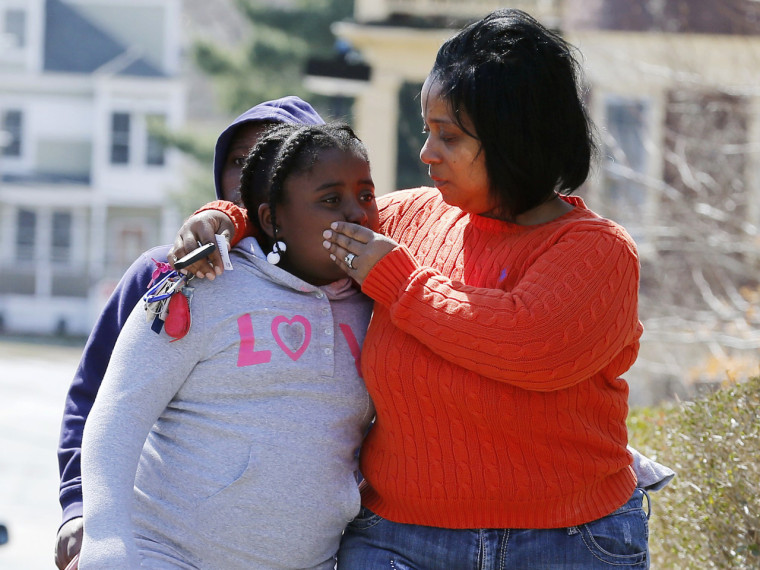The Boston Marathon bombing will represent a tragic and terrifying childhood milestone for a generation of kids born after the Sept. 11, 2001 attacks, or too young to remember them. How can parents help kids cope -- even as we're struggling with our own fears? Psychiatrist Dr. Gail Saltz, as well as child psychologist Dr. Jennifer Hartstein, offered these tips on TODAY:
- First, tell your children what happened. Even if they've heard the news or seen video -- and in this day and age they probably have seen it all on someone's iPhone by now -- they still need to hear it from you. "They are not necessarily getting the correct facts," Saltz said. "Kids tend to be kind of hysterical and dramatic about things and that leaves your kid afraid. Give them the basics in a calm and reassuring manner. They're going to take their emotional cue from you."
- Be age-appropriate and don't over-inform them. For instance, if they haven't heard that an 8-year-old was among the victims, that''s not a detail you need to offer, Saltz said. Give them the basics, then let them tell you how much they want to know, she said: "Let them ask you questions."
- Tell kids a simple message: "We're going to be OK." What kids want most is to be reassured by parents that they and their family are safe, Saltz said. She recommends saying, "This was a terrible thing, but we're OK, and we're going to go on from here."
- Monitor your kids and know when to step in. It's perfectly normal if your child had nightmares about the bombing last night, or if it happens tonight. If strong fears persist, that's something for parents to address. "If this is happening two weeks from now and they won’t go to school and they won’t leave your side, it really might be time to go seek some sort of professional help" to help kids cope, Hartstein said.
- Just be there. After a tragedy like this is a good time for family time. Hang out together. Give them a chance to ask questions. "Just be there, let them simply talk and vent and feel loved and supported," Saltz said.
- Limit media exposure. TODAY's Al Roker acknowledged this may sound strange coming from a TODAY host, but he said one of the first things he did was to turn off the TV in his house. (The youngest of his three children is 10.) That's the right thing to do, Saltz said, because kids need to get their messages from you -- and repeatedly viewing images and videos of the bomb blast can be traumatic, especially for younger children who may think it's happening over and over again. "You have to limit it," Saltz said, "because what they see visually impacts them so much more."
- But don't try to impose a media blackout. Sure, it's tempting to try to shield your kids from learning about a horrible event like this. But it won't work and it will leave kids feeling more worried, Hartstein said: "Our impulse might be to hide it from them, but the fact is they’re going to walk into a pizza place and the TV’s on and they’re going to see it. Be there to answer any questions."
- Return to normal. It's hard when you yourself might want to stay glued to the TV or computer for updates, or may not feel like going out. But getting back to your family's normal routine sends the strongest message to kids that things are OK. "That's going to be important for everyone in Boston," Saltz said, "but wherever you are, get back to the normal business of living, and that includes going to public events and sporting events. That will be the most reassuring."
Click here for more advice on how to talk to children, including guidelines by age.
